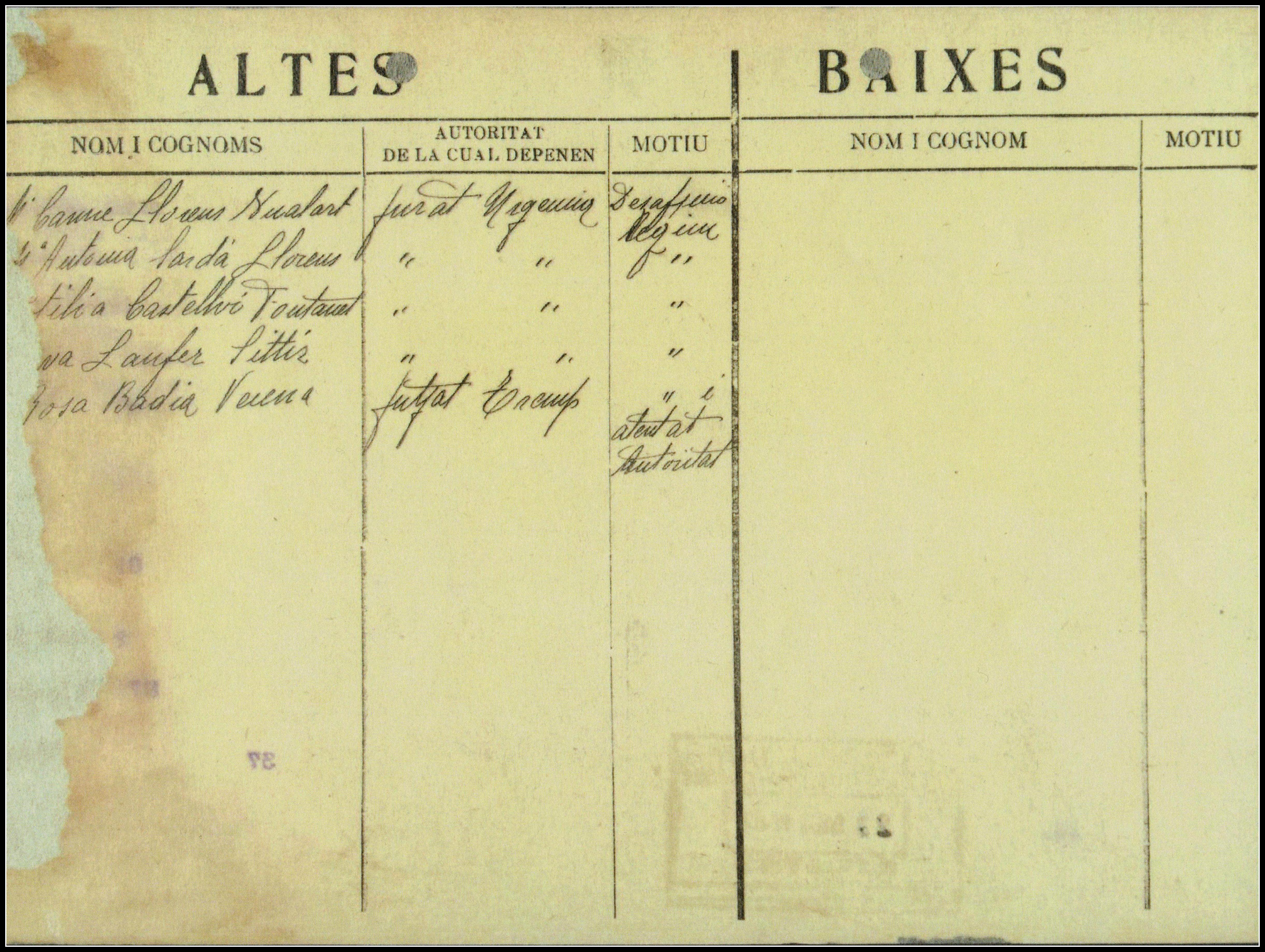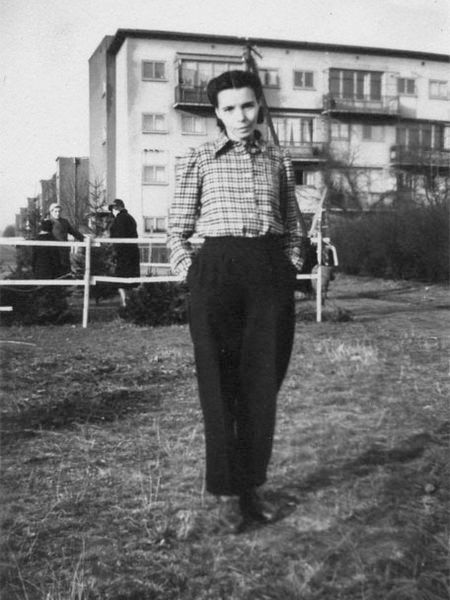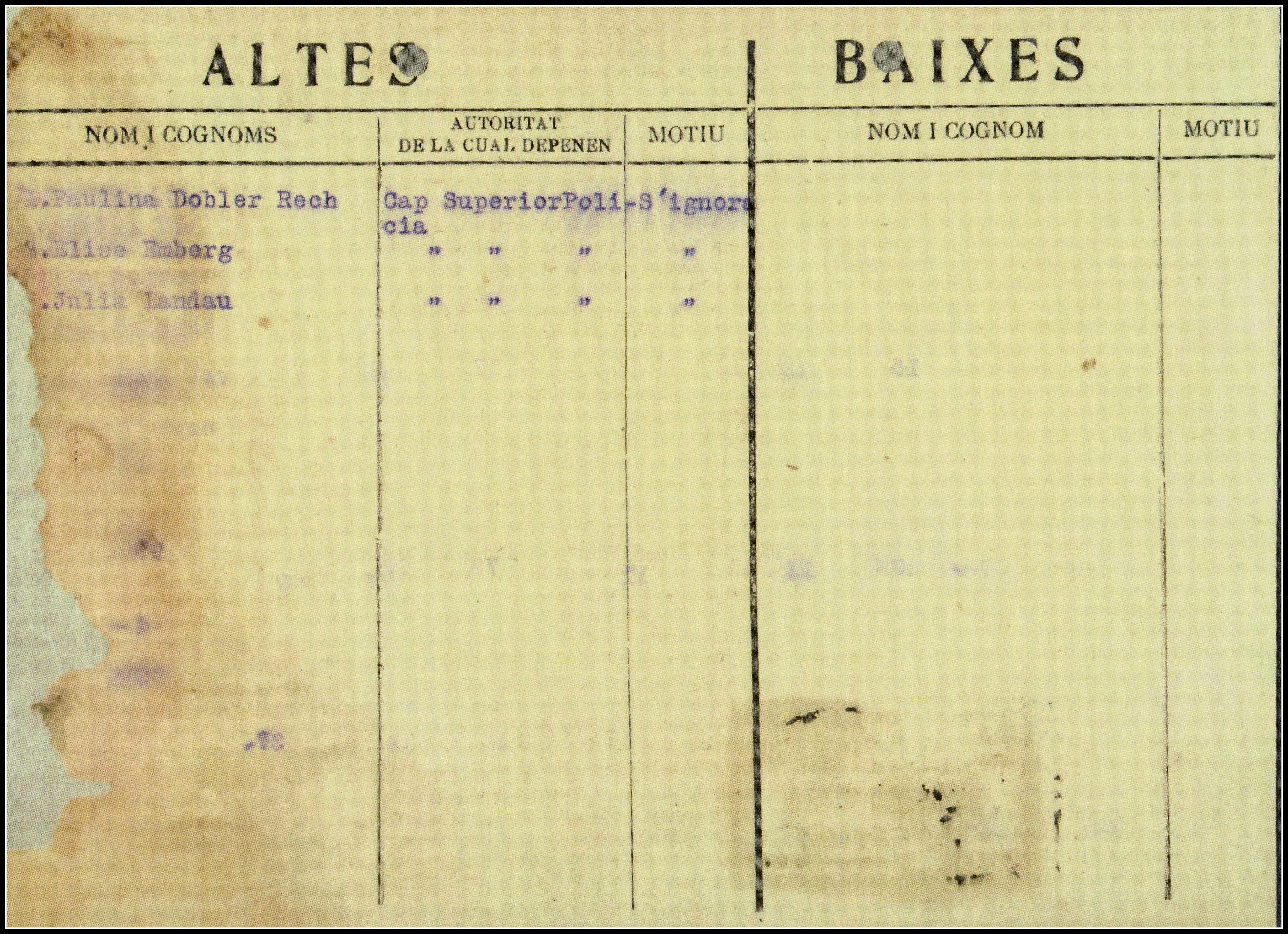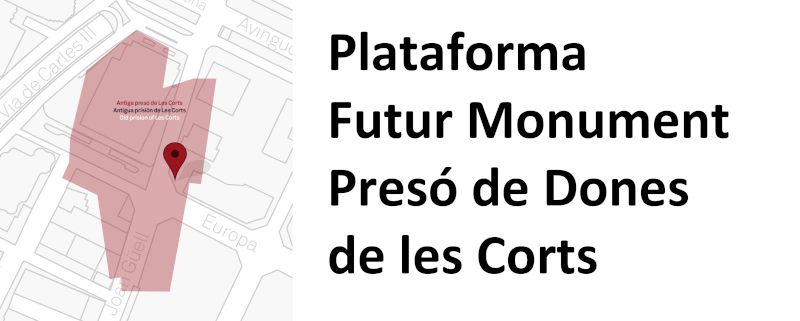That same day 21, Otilia’s mother-in-law, Carme Llorenç Nualart, and sister-in-law, Antonia Sardá Llorenç, who were members of the POUM too, as well as the German internationalist Eva Laufer of the KPD(O) (Communist Party of Germany (Opposition)), were taken to Les Corts.
Eva, who was 25 at the time of her arrest, had just got back from the Aragon frontline, where she had been working for the Ambulance Service.
They were all arrested under the pretext charge ‘disloyalty to the Regime’. According to her own account, Eva had been detained at the house of the POUM leader Andreu Nin, who had been abducted and ‘disappeared’ in June
The anti-fascists and the ‘social’ arrested for taking part in strikes and labour conflicts), as well as women of right-wing ideology and common prisoners were all living together. By then, according to the prison documents, there were 84 inmates at Les Corts, including those in custody, others that were being prosecuted or had already been tried, and the so called ‘gubernativas’ (women who were released after paying a fine, typically for engaging in prostitution activity).
A week after Otília’s entry, an Austrian citizen joined in. Her name was Katja Julia Lipschütz, aka Katia Landau, who was Kurt Landau’s partner, a communist dissident leader and a POUM associate, who ‘disappeared’ after his arrest on 23 September.
On 24 October she threatened to go on a hunger strike within 8 days unless her husband’s disappearance as well as her own situation were fully explained, as she had been in detention for nearly 4 months.
Once she started her hunger strike other fellow poumistas and internationalists (Otília and Antònia among them) joined in the hunger strike demanding a legal resolution of their imprisonment status.
Sources: ARXIU NACIONAL DE CATALUNYA (ANC), Generalitat de Catalunya (Segona República), 1-1-T-7016, 7122, 5865; Fons Bosch i Gimpera, 2.10.01 y 2.10.02.
CASTELLVÍ, Otília (2003): De les txeques de Barcelona a l’Alemanya nazi. Barcelona; EISENCHITZ, Eva (1999): “A German Communist in the Spanish Civil War”, en What Next?, nº 13, [2020.12.30]; LANDAU, Katja (1988): “Stalinism in Spain”, in Revolutionary History, Vol. 1, nº 2, [2020.12.30]; NELLES, D.; PIOTROWSKI, H.; LINSE, U., y GARCÍA, C. (2010): Antifascistas alemanes en Barcelona (1933-1939). El grupo DAS: sus actividades contra la red nazi y en el frente de Aragón. Barcelona; TASIS, Rafael (1990): Les presons dels altres. Records d’un escarceller d’ocasió. Barcelona.














